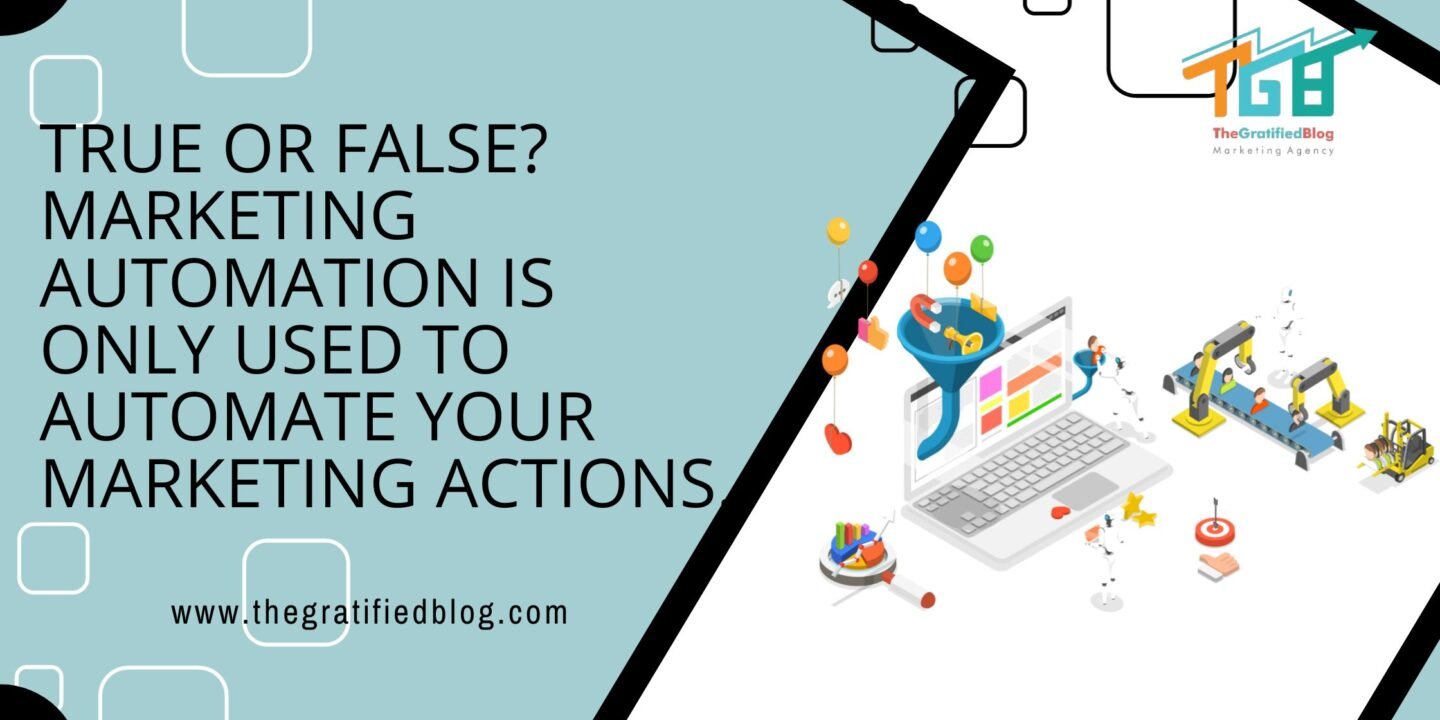
In digital marketing, “marketing automation” often conjures images of email campaigns sent on a schedule, published social media posts automatically, and leads neatly funneled through predetermined workflows. While these are essential components of marketing automation, there’s more to the story than meets the eye. Beyond the common perception of automation lies a realm where marketing strategies become more innovative, personalized, and highly responsive.
This blog post will explore the HubSpot marketing certification exam answers – True Or False? Marketing Automation Is Only Used To Automate Your Marketing Actions and the True Potential of Marketing Automation, debunking the myth that it’s just about automating routine actions. We’ll reveal how it can empower your marketing efforts to save time and deliver tailored, data-driven campaigns that drive engagement and conversions. So, let’s dive into the world of marketing automation and discover its full spectrum of capabilities.
What Is Marketing Automation?
Before we delve into the misconception, let’s clarify what marketing automation is. Marketing automation is a technological solution enabling businesses to automate routine marketing tasks and streamline workflows. These tasks may include sending emails, posting on social media, segmenting leads, tracking website visitors, and more. The goal is to reduce manual labor and enhance the efficiency of marketing processes.
Critical Components Of Marketing Automation
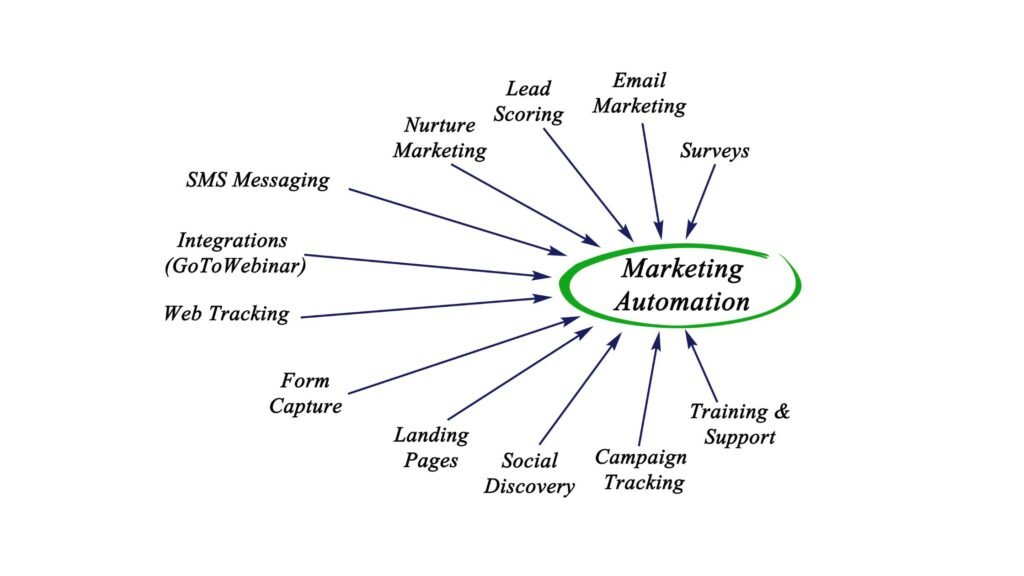
Marketing automation is a powerful strategy that utilizes technology to streamline and automate diverse marketing tasks and processes. Critical components of marketing automation typically include:
- Email Marketing Automation: Email marketing automation is fundamental to marketing automation. It includes dispatching tailored and individualized emails to leads and customers at specific times or triggered by certain actions. Automated email campaigns include welcome emails, drip campaigns, and abandoned cart reminders.
- Lead Nurturing: Lead nurturing involves cultivating and sustaining connections with potential customers, commonly called leads, throughout their buyer’s journey. Marketing automation allows you to create and provide pertinent content to leads according to their interests, behaviors, and where they are in the sales funnel. This helps move leads closer to making a purchase.
- CRM Integration: Integrating software for Customer Relationship Management (CRM) is essential for marketing automation. Integrating your marketing automation platform with a CRM system allows seamless data sharing between marketing and sales teams. It empowers you to monitor and oversee customer interactions, lead data, and customer information, ensuring a more cohesive and coordinated approach to customer engagement.
- Analytics and Reporting: Marketing automation platforms provide robust
- analytics and reporting tools to track your marketing campaign’s performance, effectiveness, and efficiency. This includes open rates, click-through rates, conversion rates, and more. Examining this data enables you to make well-informed decisions, fine-tune your campaigns, and enhance your marketing strategies.
True Or False? Marketing Automation Is Only Used To Automate Your Marketing Actions
So, the correct answer is false!
Marketing automation is not just about automating marketing actions; it encompasses a broader spectrum of activities and benefits. This understanding is crucial for the HubSpot Marketing Software Certification exam. Here’s why this statement is inaccurate:
- Customer Relationship Management (CRM):
Marketing automation tools often include robust CRM capabilities. Beyond automating marketing tasks, they allow businesses to manage customer data, track interactions, and nurture relationships. This extends beyond marketing and involves sales, customer support, and other customer-facing departments.
- Lead Nurturing and Scoring:
One of the primary objectives of marketing automation is to foster leads and guide them through the sales funnel. That involves sending personalized content to leads at the right time based on their behavior and preferences. Lead scoring, a crucial aspect of marketing automation, Assists in pinpointing leads with a higher likelihood of conversion into customers.
- Segmentation and Personalization:
Marketing automation tools enable businesses to categorize their audience according to different criteria, including demographics, behavior, and engagement. That allows for highly executing personalized marketing campaigns, which leads to enhanced customer engagement and increased conversion rates.
- Analytics and Reporting:
Marketing automation platforms offer in-depth analytics and reporting features. They provide insights into campaign performance, customer behavior, and ROI. These insights go beyond mere automation and help businesses make data-driven decisions.
Marketing automation extends its reach across multiple channels, including email, social media, SMS, and more. This holistic approach enables businesses to create consistent, personalized customer experiences across various touchpoints.
- Sales Alignment:
Marketing automation plays a crucial role in teams bridging the divide between marketing and sales. It helps align their efforts, ensuring that marketing generates high-quality leads and sales can close them more effectively.
The Benefits Of Expanding Automation
Expanding automation in various aspects of business and operations can bring several benefits. These benefits can apply to multiple industries and functions, including manufacturing, marketing, customer service, finance, etc. Here are some of the critical advantages of expanding automation:
- Improved Efficiency: Automation diminishes the necessity for manual, repetitive tasks, enabling employees to concentrate on more strategic and creative endeavors. This can result in increased productivity and accelerated process task completion, ultimately saving time and resources.
- Cost Savings: By automating routine tasks, businesses can lower labor costs and mitigate the risk of human error. Automation can also lead to energy, materials, and maintenance cost savings.
- Consistency and Accuracy: Automated processes are highly consistent and accurate, minimizing the risk of errors that can occur with manual tasks. This holds particular significance in industries where precision is imperative, such as manufacturing and healthcare.
- Scalability: Automation can quickly adapt to changing workloads and demands. As your business grows, you can scale up your automated processes without significantly increasing the need for additional human resources.
- Enhanced Quality Control: Automation can incorporate quality control measures that consistently monitor and maintain product or service quality, reducing defects and ensuring compliance with standards.
- Faster Turnaround Times: Automation can significantly reduce processing and turnaround times, enabling businesses to meet customer demands more quickly and efficiently.
- Data Analytics: Automated systems can collect and analyze data rapidly. This data can be used for insights and decision-making, helping businesses identify trends, optimize processes, and make data-driven decisions.
- Customer Satisfaction: Automation can enhance the customer experience by providing 24/7 support and quick responses to inquiries. Chatbots and automated email responses are examples of how automation can benefit customer service.
- Risk Reduction: In industries like healthcare and finance, Automation can aid in ensuring adherence to regulations and minimize the likelihood of errors or fraudulent activities. Automated record-keeping and audit trails are valuable in this regard.
- Innovation and Competitive Advantage: Automation frees businesses up resources for innovation and strategic initiatives. It can also assist companies in maintaining competitiveness by offering the agility to adapt to changing market conditions and customer needs.
How Do You Automate The Marketing Process?
Automating marketing processes involves using technology and software to streamline and execute various marketing tasks and activities more efficiently. Marketing automation can save time, enhance targeting, and improve campaign effectiveness. Here are the steps to automate marketing processes:
- Set Clear Goals and Objectives: Before automating your marketing processes, define clear goals. What do you want to achieve with your marketing efforts? Whether it’s lead generation, lead nurturing, customer retention, or increasing sales, having clear objectives will guide your automation strategy.
- Select the Right Marketing Automation Software: Choose a marketing automation platform that suits your needs. Various marketing automation tools are available, such as HubSpot, Marketo, Pardot, and many others. Ensure the software you select aligns with your goals and integrates with your existing systems, such as your Customer Relationship Management (CRM) platform.
- Data Collection and Segmentation: Gather and organize your customer data. That includes information about your leads and customers, their behavior, preferences, and demographics. Segmentation is a crucial step in automation, enabling you to focus on particular audience segments with tailored content and messaging.
- Create Engaging Content: Create content that holds relevance to your target audience. That can include blog posts, emails, social media updates, videos, and more. The foundation of your marketing endeavors lies in your content, and automation helps deliver it to the right people at the right time.
- Lead Capture and Generation: Use automation To gather leads from diverse sources, including your website, landing pages, and social media. Implement lead capture forms and optimize them for conversions. Automation tools can also assist in lead scoring to prioritize leads for follow-up.
- Email Marketing Automation: Set up email automation workflows. That includes sending automated emails responding to user actions or at predefined intervals. Use email automation for welcome series, drip campaigns, abandoned cart reminders, and personalized recommendations.
- Lead Nurturing: Create automated workflows for lead nurturing. Based on lead behavior and interactions, trigger specific responses and content to move leads through the sales funnel. Nurturing can involve educational content, product information, and offers.
- Social Media Automation: Utilize social media automation tools for scheduling and publishing posts, interacting with your audience, and analyzing social media performance. Automation can help maintain a consistent online presence across platforms.
- Analytics and Reporting: Keep a close eye on assessing and gauging the impact of your marketing endeavors. Marketing automation platforms offer insights into open rates, click-through rates, conversions, and more. Use this data to optimize your strategies and make data-driven decisions.
- Integration with CRM: Ensure your marketing automation platform integrates seamlessly with your CRM system. That facilitates data sharing between marketing and sales teams, improving lead management and customer engagement.
How Is AI Used In Marketing Automation?
Artificial intelligence is increasingly used in marketing automation to enhance efficiency, personalization, and data-driven decision-making. Here are several ways AI is applied in marketing automation:
- Predictive Analytics: AI algorithms can analyze large datasets to recognize patterns and forecast future customer behavior. Marketers can leverage predictive analytics to discern which leads are more inclined to convert, what content will resonate with a particular audience, and when the best time to engage with a prospect is.
- Personalization: AI can analyze user data and behavior to provide exceptionally personalized content and product suggestions. This personalization can extend to email marketing, website content, and product suggestions, increasing customer engagement and conversions.
- Chatbots and Virtual Assistants: AI-powered chatbots and virtual assistants can provide instant customer support and engage with website visitors 24/7. They can answer common questions, assist in product recommendations, and even handle transactions, improving the user experience and reducing response times.
- Lead Scoring: AI algorithms can assign lead scores to prospects based on their engagement and behavior. That helps sales and marketing teams prioritize and nurture leads effectively, focusing their efforts on the most promising opportunities.
- Content Creation: AI can generate content, such as product descriptions, social media posts, and even articles. While this is still in its early stages, AI can assist in content creation, saving time for marketers.
- A/B Testing and Optimization: AI can automatically conduct A/B tests on marketing campaigns to determine which elements, such as subject lines, images, or CTAs, are most effective. It can then optimize campaigns in real time based on the results.
Real-World Examples Of Marketing Automation
Here are some real-world examples of marketing automation in action:
- Amazon:
- Amazon uses marketing automation to offer customized product suggestions to its customers, considering their browsing and purchase history. That helps increase sales by showing customers products they are likely interested in.
- Netflix:
- Based on their viewing history, Netflix utilizes marketing automation to recommend TV shows and movies to its subscribers. This personalized content recommendation system keeps users engaged and increases retention rates.
- HubSpot:
- HubSpot, a marketing automation platform, practices what it preaches by using its marketing automation tools. They use email marketing automation to send targeted emails to their leads and customers, nurturing them through the sales funnel.
- Airbnb:
- Airbnb uses marketing automation to send automated emails to hosts and guests at various stages of the booking process. These emails include booking confirmations, check-in instructions, and post-stay reviews, enhancing the user experience.
- Starbucks:
- Starbucks uses marketing automation to send personalized offers and promotions to its loyalty program members through its mobile app. These offers are based on the user’s purchase history and location, encouraging repeat visits.
- eBay:
- eBay employs marketing automation to send email notifications to users about items they are watching, bidding on, or interested in. They also send personalized recommendations for products based on user behavior.
- Adobe:
- Adobe leverages marketing automation to nurture leads and customers. They send personalized email campaigns and content recommendations to their Creative Cloud software users, encouraging upsells and cross-sells.
FAQs
Q1. What is marketing automation used for?
A. They are utilized for streamlining and automating marketing processes, tasks, and processes, making them more efficient and effective. It empowers businesses to convey the appropriate message to the correct audience precisely.
Q2. Is it true or false that marketing automation is only used for nurturing leads?
A. False. Marketing automation is not only used for nurturing leads. While lead nurturing is a typical application of marketing automation, it serves a broader range of purposes in marketing and can be utilized at various stages of the customer lifecycle.
Q3. Does marketing automation replace human creativity?
A. Marketing automation complements human creativity and strategy rather than replacing them. While automation handles repetitive tasks, it requires human input for creative content creation, strategic planning, and decision-making.
Q4. Is marketing automation an example of machine learning?
A. No, marketing automation is not an example of machine learning. Marketing automation relies on predefined rules and conditions, while machine learning uses data-driven algorithms to make predictions and decisions.
Conclusion
The statement “True or False? Marketing Automation Is Only Used To Automate Your Marketing Actions” is unequivocally false. Marketing automation is a versatile and powerful tool that extends beyond the mere automation of marketing activities. While it excels at streamlining marketing tasks, its applications are diverse, encompassing lead generation, nurturing, customer retention, and more.
Feel free to comment on our blog to deepen your understanding of this concept and further explore its multifaceted benefits.


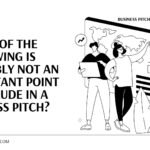

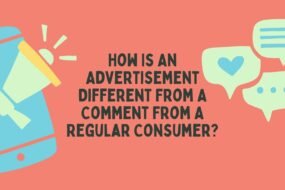
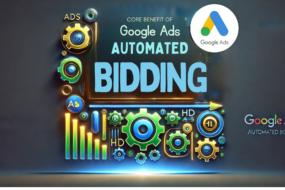


No Comments